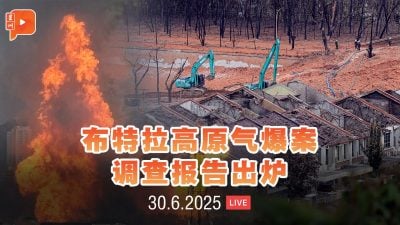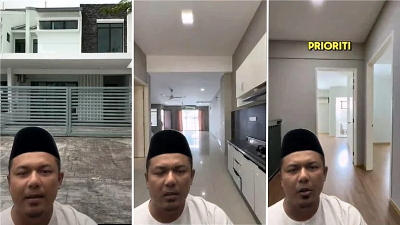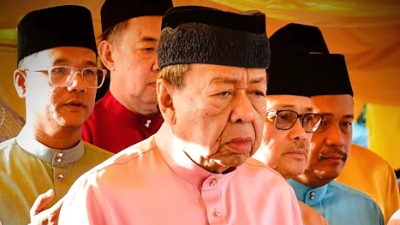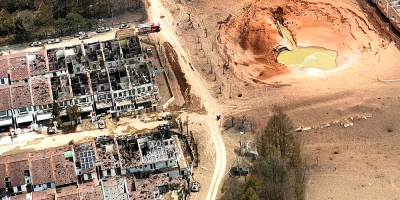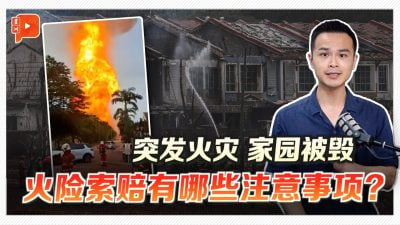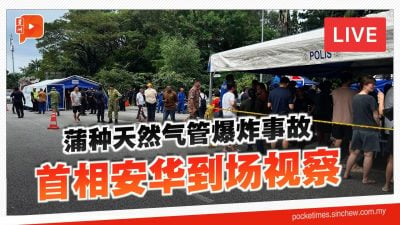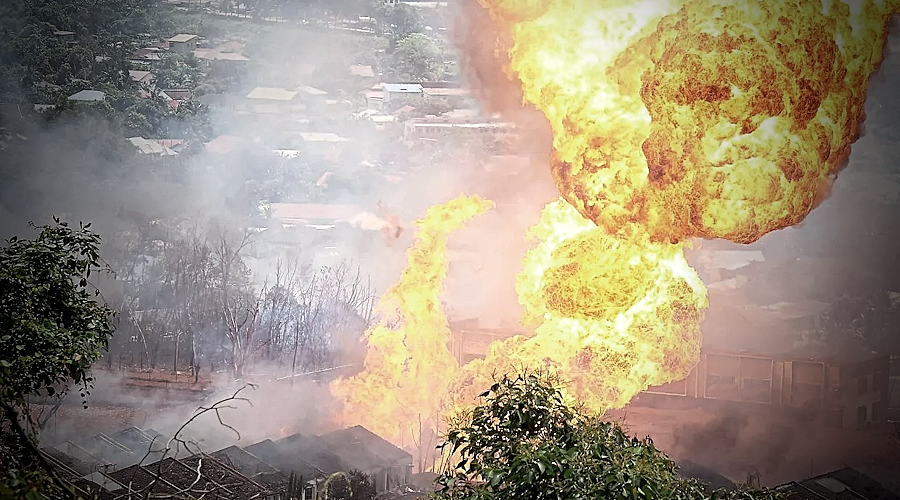
In April 2025, when families across the country were celebrating Aidilfitri, life in Putra Heights was shattered in ways none of us could have imagined.
The gas blast and fire that raged for close to eight hours tore through our neighborhood, reducing houses to rubble, damaging many others, including my parents’ home, and leaving behind scars that went far beyond the physical.
Even for those whose properties were untouched, the sense of safety in our own community was destroyed overnight.
In the immediate aftermath, officials from both state and federal levels came, as did the police, bomba, and volunteers.
We were given promises—some fulfilled, such as medical coverage and small compensation; others, left vague. For weeks, however, many of us felt that the one party we expected to hear from most—Petronas Gas the operator of the pipeline—was nowhere to be seen.
The silence was deafening, and the anger was real.
More than a month later, Petronas Gas finally held a townhall. By then, emotions had hardened into resentment.
Residents pressed for answers and worried about what would happen once gas supply resumed. Trust was at an all-time low.
The narrative was simple: the company had failed to show up when it mattered most.
But as the months went on and more engagement sessions followed, a fuller picture began to emerge.
Slowly, we learned that Petronas Gas had in fact been active from the beginning—not in front of cameras, but in the background, working with agencies to support immediate needs.
More than RM2 million was channeled in the early days, and later RM25 million was handed through the Ministry of Housing and Local Government (KPKT) for rebuilding efforts.
Many residents, myself included, were shocked.
Why was this never communicated openly? Why did KPKT not highlight Petronas Gas’s contribution from the start?
With time, Petronas Gas began to share its own outreach initiatives.
Under a framework called PGB Connects, we were introduced to programs that initially sounded like mere corporate jargon.
‘Tenang’ provided counseling and mental health support—something badly needed in a community still traumatized.
Awareness n’ Action (AnA) offered safety education, briefings, and access to clearer information about the pipeline and what living near it means.
The latest program, Laman, seeks to restore communal spaces and make our neighborhoods safer, greener, and more livable.
At first, many of us dismissed these as distractions from what we really wanted which are reparation of our homes. I was one of the harshest critics.
However, it became clear that initiatives such as Tenang could provide real value to residents still grappling with trauma and the emotional toll of the incident.
The true meaning of corporate responsibility is the willingness to learn, to change course, and to take ownership in ways that make people feel seen, heard, and supported.
The WhatsApp community group introduced by Petronas Gas also offered something different—a direct platform for residents to voice concerns and receive updates effectively, without having to rely solely on association leaders.
And at the most recent townhall, a new initiative, Claim & Connect, was rolled out—a mechanism for residents to submit claims for losses to be assessed for payment.
It may not cover everything, but it is a tangible step forward.
This stands in sharp contrast to what we continue to face with KPKT’s promise of reconstruction.
Months later, rebuilding is painfully slow. Contractors engaged through the ministry have been inconsistent. Some residents were told only partial repairs would be done, even for houses clearly unsafe to occupy. Others discovered wiring, plumbing, and even roof repairs excluded from the scope.
To make matters worse, residents were asked to sign “surat setuju terima” forms, effectively waiving their rights to any future action, without clarity on the work to be carried out. The frustration has only deepened.
Against this backdrop, Petronas Gas’s steady presence, though late in coming, has grown into something meaningful.
By listening, by showing up repeatedly, and by putting resources where they matter—mental health, safety education, communal rebuilding, and now a claims channel.
They have shown that corporate responsibility is not about press conferences or cheques handed out in front of flashing cameras.
It is about persistence, humility, and recognizing that when lives are disrupted, the duty to stand with communities goes far beyond legal liability.
The true meaning of corporate responsibility is not perfection, nor is it the absence of mistakes.
It is the willingness to learn, to change course, and to take ownership in ways that make people feel seen, heard, and supported.
For all my earlier criticisms, I cannot deny that Petronas Gas has demonstrated this in Putra Heights.
I write not to praise, but to acknowledge. Because when the dust finally settles, and when our community slowly rebuilds its sense of safety, what we will remember most is not just the blast itself, but who chose to stand with us when it mattered.
That is the true meaning of responsibility.
Sincerely,
Moving On
ADVERTISEMENT
ADVERTISEMENT






